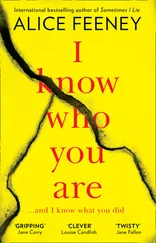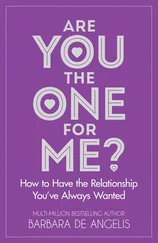I told her I’d been there for a couple of days.
“You cannot imagine how wonderful it is for us now, to be able to travel abroad. To finally see the world,” she said. “This was best thing about perestroika. Life was good then. We were free to travel, but our economy was not so bad. Gorbachev was better than Yeltsin.”
Svetlana proved to be an exacting guide. There was a lot to see, and she was not going to let me skip anything. She unspooled historical dates and facts without pause. “This is very old church,” she said as we entered St. Basil’s. Ivan the Terrible commissioned it in 1555 and then, according to legend, had its architect blinded so that he could never again build something so beautiful. That’s Russia for you: there’s always violence in the wings. After our visit to St. Basil’s, Svetlana took me to GUM, which had begun its transformation from state-run department store to Western-style mall. The empty shelves of perestroika were now filled with foreign goods that few people could afford. The new tenants were Reebok and Benetton and Adidas, though the ubiqitous tracksuits sported on the streets of the city were mostly knockoffs. And the bathrooms, I discovered, were depressingly spartan and devoid of toilet paper.
Svetlana stopped to buy ice cream at a kiosk. It was wrapped in waxy paper; she peeled it away with a gesture that struck me as nostalgic. As she licked the cone, I saw traces of the eager child she must have been.
“What did Jennifer say about me?” I asked her.
“Kogda?” When?
“You said she told you a lot about me ...”
“She said you were grustnaya. ”
“That’s sad,” I said.
“Da,” she said. “You were sad.”
She told Svetlana I was sad? Did she mean sad as in pathetic? Didn’t she have anything better to say about me? Over the years I’d learned that some people are frightened by sadness, by intense feeling of any kind, and around such people I had learned to stay on guard, aware that revealing any vulnerability would push them away. I had other friends after Jenny, but she was the last person I completely let in, the last one to spend any time with my mother in our haunted house. I was sure that people would like me better if they didn’t know where I came from. In high school I approximated an easygoing air, and in college I found a vaguely literary crowd in which a melancholy streak and bleak humor were practically required for membership. But the fact that Svetlana was dismissing me as “sad” seemed ironic given that she was Russian. Russians had a predilection for the tragic, didn’t they? Surely this was a place where I wouldn’t have to apologize for not being happy all the time. I liked reading the Russians—all those ill-fated love affairs set against desolate landscapes. I was partial to unhappy endings. Misery loves company.
* * *
THEN WE WENT TO THE KREMLIN. “ Kreml means ‘fortress,’” Sveta said. Like a game-show hostess, she gestured at the medieval walls that had kept people out for so long. There were two different admission prices: one for Russians, a much higher one for foreigners. This was typical, Svetlana said. All the museums also had a separate price for foreigners. I had no idea how many buildings the Kremlin complex contained. I would have been content to breeze through the grounds, but Svetlana insisted on a lengthy, formal tour. “Here is possible to see world’s largest bell,” she said of the Tsar-kolokol, which cracked before it ever rang and now sits, dormant, beside the bell tower. “Here is possible to see Assumption Cathedral,” she said as we entered the building where heads of the Russian Orthodox Church were buried until the early eighteenth century. “Here you can see icons from twelfth and thirteenth centuries.” This was not an interactive tour. She moved me from point to point like a toy on a factory assembly line. There were other groups of tourists being herded in similar fashion. Many of them clutched guidebooks as if they were security blankets. “Here is possible to see Annunciation Cathedral, built in 1484. Here you can see famous icons of Theophanes.”
“So many cathedrals, so many icons,” I said. So many onion domes, I thought. I was exhausted.
She studied me, trying to make sense of my comment.
“Religion’s making a comeback, isn’t it?” I said.
“What is this ‘comeback’?”
“I mean, it’s coming back. People are rediscovering religion?”
“Yes, well, Orthodox Church is suddenly very—how do you say it?—popular. You know, people followed the party, now they follow church. Unfortunately, I cannot say if they are true believers.”
“So you came here with Jennifer?”
“What?”
“I mean, to the Kremlin. To all these churches.”
“Da, konechno.” Yes, of course.
“Do you mind if I take a picture of you outside? By the czar’s cannon, maybe?”
“Pochemu?” Why? Most Russians were understandably wary of cameras.
“My mother wants me to take pictures of the places Jenny visited when she was here ...”
“When she was here?”
“Da.”
“You understand, of course, is possible she is here now.”
“You’ve seen her?”
“Maybe,” she said.
“If she’s really alive, tell me where she is.”
“I cannot tell you that. Not yet.” Svetlana smiled. “Now we will see Armory. Many beautiful treasures to behold.”
She had switched back into guide mode. Clearly I wasn’t going to get any more personal information out of her that day. I followed her through the rooms of the Armory Museum in a daze. Sveta pointed at czarist regalia and Fabergé eggs, but I couldn’t focus on the jewels. It was Jenny I was thinking about.
When we finally emerged from the Armory, it was nearly five o’clock and I was famished. “I’m hungry,” I said in Russian. Actually, the construction I used translates as “I want to eat,” which seemed appropriately insistent given how desperately my stomach needed to be filled.
Svetlana nodded. She said she’d take me back to Patriarch’s Ponds and resume our tour another day. “To be continued,” she said. “Yes?”
“Da,” I said.
* * *
THAT NIGHT CORINNE TOLD me we were going out. I’d been in Moscow for nearly two weeks and had finally adjusted to the time difference. She told me I needed to get out and meet some people. It was Saturday, and Corinne said we’d start at Rosie O’Grady’s, an Irish pub where all the expats went. It was already cold enough to require winter jackets. I wore the same navy peacoat that had shielded me from Vermont winters, but Corinne was in fur.
“I know, I know,” she said when she saw me looking at her coat. “I was against fur before I came here. But then you realize that nothing else keeps you warm enough.”
On the street she said, “We’ll take a cab,” and then stuck out her arm. I hadn’t seen a single taxi since I arrived, but I soon learned that “taking a cab” was a euphemism for sanctioned hitchhiking. People just hailed any car that would stop, negotiated a price, and trusted that he—I never saw a woman driver—would take you where you had asked to go. It was a beat-up Neva that pulled over for us, and I was sure that my mother would be distraught if she knew I was climbing into a stranger’s car, especially after dark, in a city where men were almost never sober. There were no seat belts in the back, and the driver’s face was at best surly, at worst downright hostile, but I kept telling myself, When in Rome ... while Corinne began a rapid-fire exchange in Russian, most of which I couldn’t comprehend. I don’t think I let out my breath until we pulled up in front of the bar fifteen minutes later. Corinne passed some rubles to the front seat and then opened the door. We were out.
Читать дальше












